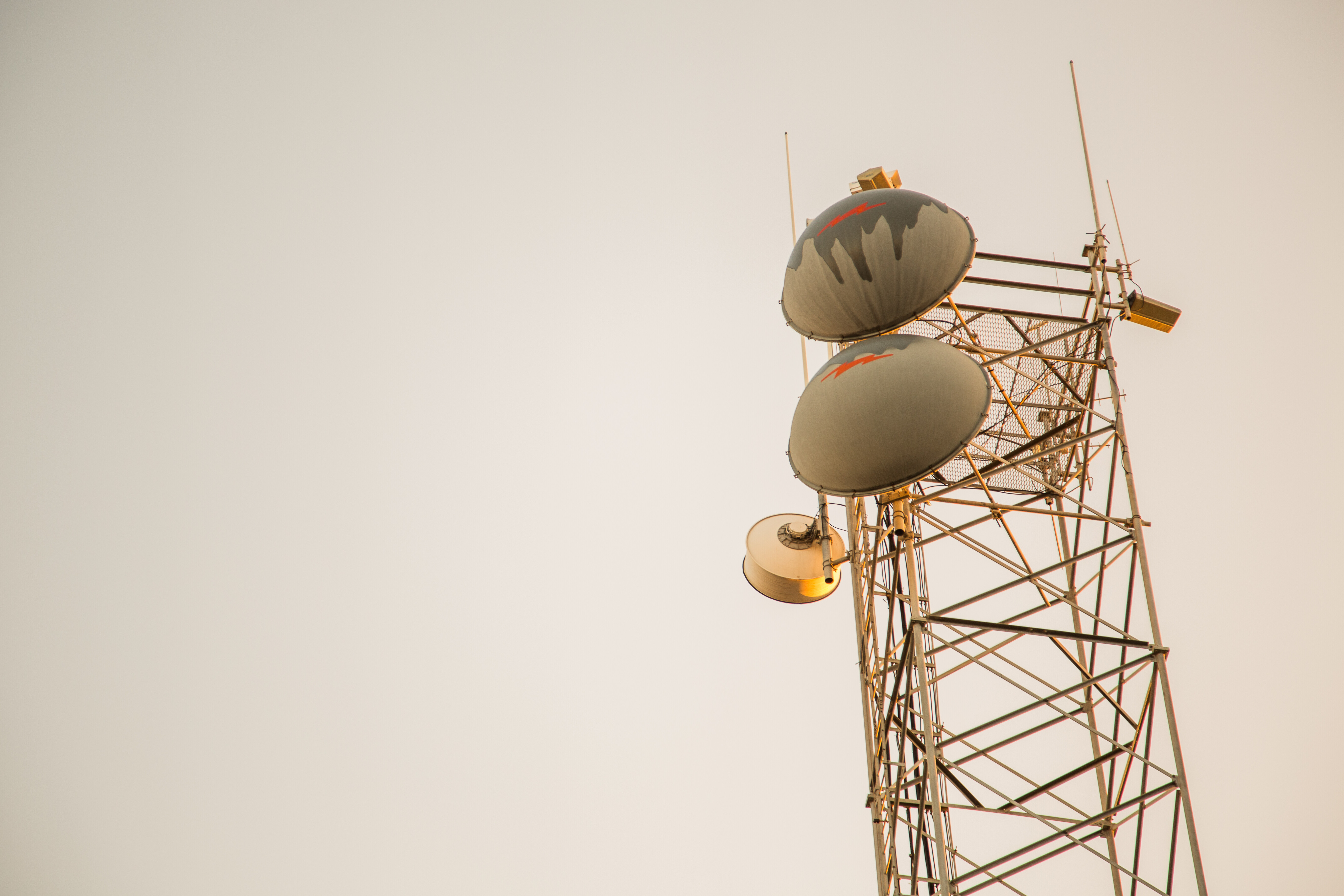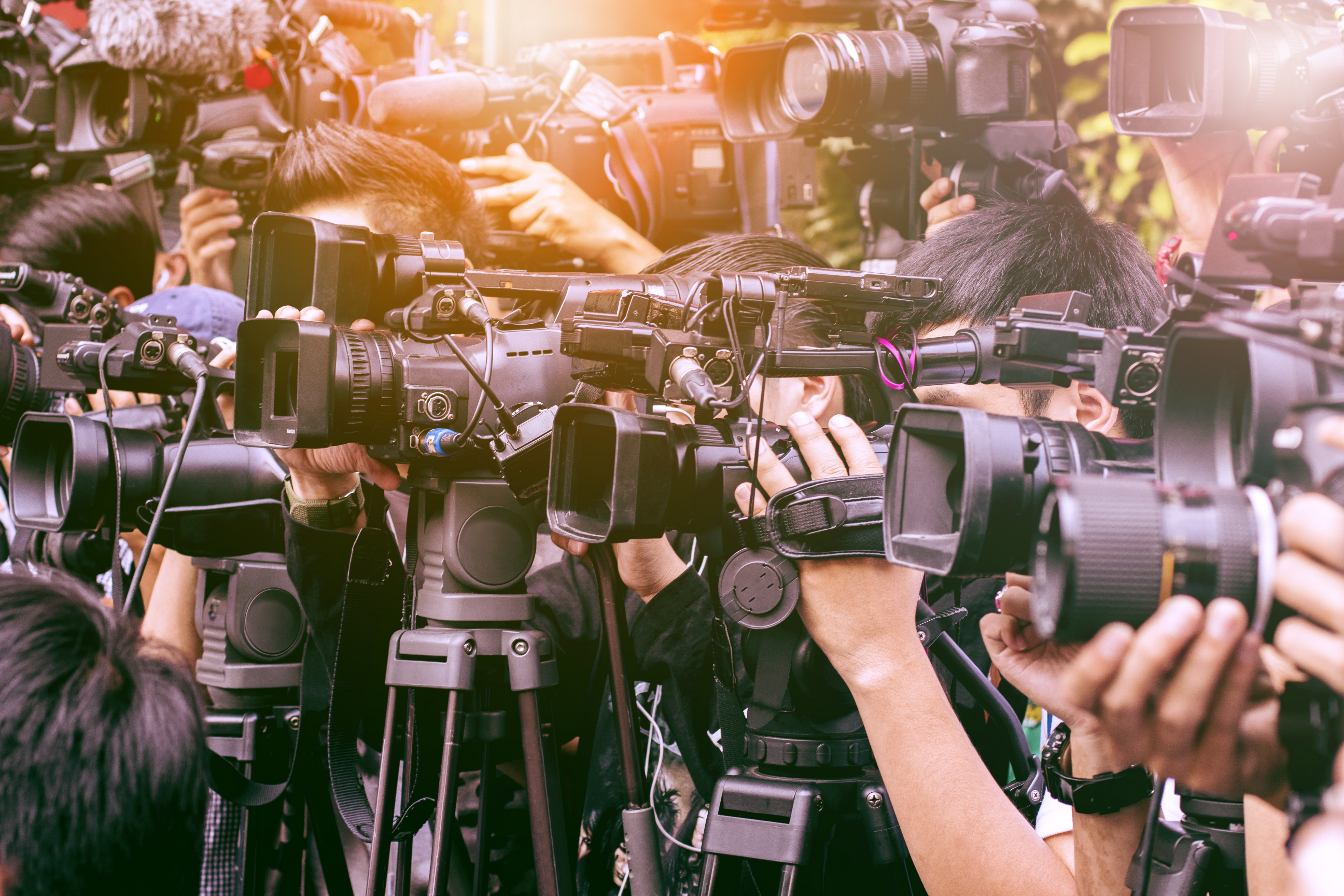New Zealand
It is at times of crisis that the unique role of public media becomes most apparent and most critical.
This week the global media spotlight has fallen on the terrible events in New Zealand. For Radio New Zealand, this is far more than another news story. Public trust depends on providing a safe space for dialogue, a space that avoids sensationalism and provides clear and accurate facts.
This week, our thoughts are with our colleagues in New Zealand as they work through shock and grief to maintain public trust and enable a space for the nation to rebuild.
Our weekly round-up of public service media related stories and headlines from around the world.
Click on the drop-down menus below to reveal the latest regional stories.
ALGERIA: Bouteflika protests: Algeria’s shifting media space
Aljazeera: Are shifts in media coverage a sign that this is really the beginning of the end of Bouteflika’s 20-year rule?
CHAD: CPJ joins calls to end social media block in Chad
CPJ: The Committee to Protect Journalists this week joined at least 79 rights organizations to urge African Union and United Nations experts to take action to end the government of Chad’s nearly year-long block on social media platforms, including Twitter, Facebook, and WhatsApp.
EGYPT: Egypt tightens restrictions on media, social networks
The Washington Post: Egypt’s top media regulator has put into effect tighter restrictions that allow the state to block websites and even social media accounts with over 5,000 followers if they’re deemed a threat to national security.
GHANA: Creeping State of Insecurity for Journalists in Ghana
MFWA: It was a turbulent period for the media in Ghana last week. In what appears to be a creeping state of insecurity for journalists the week has recorded a number of attacks on press freedom.
KENYA: Bringing Kenyan Journalists and Activists Together
IWPR: Event hears that collaboration is key in the fight against abuses.
KENYA: In Kenya, increasingly critical media see growing attacks
IPI: Government actions at odds with constitutional guarantees
NIGERIA: Increased attacks on journalists during governorship/state assembly elections
Via IFEX: The International Press Centre (IPC), Lagos has once again condemned reported incidents of attacks on journalists and other media professionals during the Governorship and State Assembly elections held on Saturday March 9, 2019.
SOUTH AFRICA: Final list of SABC board candidates before National Assembly
SABC News: The National Assembly is expected to consider the 8 names of persons that Parliament’s Communications Committee has recommended to serve on the SABC Board.
SOUTH AFRICA: SABC exec Neo Momodu resigns
Eyewitness News: In a statement, the public broadcaster has said Neo Momodu decided to step down in order to pursue other interests.
SUDAN: Restrictions On Sudan’s Press Freedoms Condemned During Vigil
Via All Africa
ZAMBIA: MISA Zambia welcomes move to empower IBA
MISA: MISA Zambia has welcomed the pronouncement by the government to enact a law that will grant the Independent Broadcasting Authority (IBA) legal mandate to regulate Zambia National Broadcasting Corporation (ZNBC).
ZIMBABWE: “WhatsApp has come in to fill the void”: In Zimbabwe, the future of news is messaging
NiemanLab: A look at how outlets like 263Chat, Kukurigo, Center for Innovation and Technology, and Magamba Network are distributing news via the app. WhatsApp connections comprise almost half of all internet usage in Zimbabwe.
CHINA: Watchdog tells China to ‘stop harassing media’
The Local.se: Stop harassing Swedish journalists, media rights watchdog urged China’s embassy in Stockholm, accusing Beijing of trying to censor reporters beyond its borders.
INDIA: Doordarshan promotes gender sensitive programming with new guidelines
Rapid TV News: National broadcaster Doordarshan has produced guidelines for gender sensitive programming, in the hope of avoiding gender stereotypes and challenging inequality in India.
INDIA: How Narendra Modi has almost killed the Indian media
QUARTZ: The long-simmering crisis of credibility in the Indian news media reached a boiling point in the weeks following the deadly terrorist attack in Pulwama, Jammu & Kashmir last month.
INDONESIA: Timor Leste, Indonesia strengthen relations in press freedom
IFJ: During a visit to Indonesia, the Timor Leste Press Council signed several agreements with local organisations to promote press freedom in Timor Leste and Indonesia.
JAPAN: Owners of TV-capable cell phones must pay NHK public channel fees, Japan’s top court rules
The Japan Times: The Supreme Court has finalized high court rulings ordering owners of cell phones with TV functions to pay a subscription fee to NHK, it was learned Wednesday.
JAPAN: Public broadcaster’s AI newsreader to make senryu poetry debut
The Mainichi: Public broadcaster NHK’s AI-based announcer “News no Yomiko” will try her hand — or algorithms — at composing senryu poetry based on current events, it was announced on March 12.
MALAYSIA: How one election meant sweeping press freedoms in Malaysia
CJR: Before 2018, journalism in Malaysia was a risky profession. There were direct controls on mainstream outlets across print and television.
SRI LANKA: Sri Lanka Media Rights Activists Decry New Anti-terror Laws
VOA: Media rights activists on Monday urged the Sri Lankan government to withdraw proposed anti-terror legislation, calling it a set of draconian laws aimed at suppressing media freedom and democratic rights.
THAILAND: RPT-In Thai election, new ‘war room’ polices social media
Reuters: In Thailand’s election “war room”, authorities scroll through thousands of social media posts, looking for violations of laws restricting political parties’ campaigning on social media that activists say are among the most prohibitive in the world.
AUSTRALIA: Australian media broadcast footage from Christchurch shootings despite police pleas
The Guardian: Sky News Australia broadcast footage of the shooter at the mosque and Ten Daily embedded footage on website and social media posts.
AUSTRALIA: Muslim Sky News staffer quits and says channel increases ‘polarisation and paranoia’
The Guardian: Rashna Farrukh says the Christchurch massacre shows media coverage has ‘real life consequences’
NEW ZEALAND: Graeme Tuckett: Media response to Christchurch
RNZ: Graeme Tuckett has been watching and listening to the coverage of the Christchurch terror attacks over the weekend. He looks at how New Zealand’s media dealt with such unprecedented situation.
NEW ZEALAND: Social media’s place in spreading mosque killing video
RNZ: The mass killing was live streamed on Facebook, announced on 8chan commented about on Reddit. Is it time tech companies were really called to task? Andrew Cushen of InternetNZ says it’s hard to know what to do next.
NEW ZEALAND: Sky New Zealand pulls Sky News Australia off air over Christchurch massacre coverage
The Guardian: Independent channel says decision by Rupert Murdoch’s company to show ‘distressing’ footage of terror attack is behind move.
SAMOA: Samoa journos unhappy over new camera rules at parliament
RNZ: Samoa’s national media organisation has spoken out against new rules banning outside cameras from recording parliament.
FRANCE: France Télévisions accelerates on digital fiction (French)
Le Parisien: With the success of “Skam France”, France Télévisions is developing several ambitious projects for France.tv, its online platform.
HUNGARY: Átló: Taking on Corruption in Hungary with Data Journalism
GIJN: The majority of the media industry in Hungary is owned and controlled by pro-government oligarchs. Átlátszó’s data journalism projects have focused on exposing corruption within the government.
ICELAND: Media revenue in Iceland – new analysis
Nordicom: In 2017, the Icelandic media revenue decreased by two per cent. Since the market’s all-time high in 2006-2007, the total media revenue has decreased by almost a fifth. This is according to a new report from Statistics Iceland.
IRELAND: Dublin ‘losing the race’ to be post-Brexit broadcasting hub
The Irish Times: Regulator sees inquiries rise, but big groups are choosing Germany and Netherlands.
Article 19: Free speech groups have condemned the Government of Malta’s response to concerns about the state of freedom of expression in Malta following the assassination of Daphne Caruana Galizia.
MONTENEGRO: Roundtable on the Draft Law on Amendments to the Law on National Public Broadcasting Radio-Television of Montenegro (RTCG)
COE: The main objective of the roundtable was to enable public discussion about proposed amendments and legal solutions and to inform all interested parties on the legal opinions delivered by Council of Europe international media experts.
NETHERLANDS: Dutch public broadcaster opposes end to advertising – report
Telecompaper: The Dutch public broadcaster NPO and its affiliated channels are opposed to making the public network free of advertising, according to a letter to the government seen by the paper AD.
POLAND: Maciej Stanecki dismissed from TVP board
Broadband Tv News: Poland’s National Media Council (RMN) has dismissed Maciej Stanecki from the board of the Polish public broadcaster TVP.
POLAND: TVP grows revenues and VOD service
Broadband Tv News: The Polish public broadcaster TVP saw its revenues from sponsorship and advertising grow by 13.7% in 2018.
Safe Journalists: Tthe Independent Journalists’ Association of Serbia and the Independent Journalists’ Association of Vojvodina warn the public that latest incidents at the public media service Serbian Radio Television (RTS) building are the result of years long spread of hate speech, hindering of media freedom, creation of an atmosphere of lynch and the abolition of public dialogue.
SERBIA: Tensions escalate in Belgrade after breach of public TV station
DW: Serbian President Aleksandar Vucic slammed “tycoon bullies and fascist goon squads” who entered the offices of public broadcaster RTS. The protesters had wanted to read out their requests on air.
SLOVAKIA: Slovakia charges suspected mastermind in journalist murder
IPI: IPI welcomes development but emphasizes long path to full justice.
SPAIN: A TVE ‘off-peak’ waiting for a digital transformation (Spanish)
El País: The public broadcaster goes through one of its worst moments of audience ratings, without a defined project, and pending the general elections.
SWITZERLAND: RTS launches Mission B – a project to inspire people to take action on biodiversity (French)
LMFP: This is Mission B (for Biodiversity), a project in collaboration with radio and television stations in other linguistic regions and will run for two years. Objective: to create together an additional million square meters of flowery meadow.
UK: BBC chair: UK media regulation is no longer fit for modern age
The Guardian: David Clementi to argue against limiting time iPlayer can make shows available for
UK: BBC News shows that hard-hitting solutions journalism stories can thrive on social media
Journalism.co.uk: Speaking at Newsrewired (6 March), Jonathan Paterson, editor, digital video, BBC News said that solutions journalism can hold the key to engaging young, social media-savvy audiences with strong visual content
UK: House of Lords to investigate future of public broadcasters
Broadband TV News: The House of Lords Communications Committee in the UK launches a new inquiry if new VOD services spell the end for public service broadcaster.
UK: Radio 4 listeners could be alienated by budget cuts, says BBC chair
The Guardian: However, David Clementi says argument is overstated and radio must evolve
UK: Use forecast to talk about climate change, urges ex-BBC presenter
The Guardian: Bill Giles calls on broadcasters to add slot explaining humans’ impact on climate
REGIONAL: Media Under Pressure Across Balkans, State Department Warns
Balkan Insight: The State Department’s annual human rights report says political and oligarchical pressures, as well as lawsuits, remain a constant threat to media freedom in the region, although the situation in North Macedonia has improved.
GENERAL: EU reaches agreement on protecting whistleblowers
RSF: Reached after difficult negotiations between the European Parliament and the Council of the European Union (representing member states), the agreement nonetheless represents real progress and opens the way to final adoption of an EU directive on protecting whistleblowers before the EU elections in May.
COLOMBIA: Colombia: “A country’s public media belong to the nation, not the government (Spanish)
VOA: A censorship scandal around the public media system in Colombia that led to the recent resignation of its director, Juan Pablo Bieri, put on the table the debate about the current state media situation in the country and whether or not freedom of the press exists.
MEXICO: With 99% impunity for crimes against journalists, organization says Mexican justice system is flawed
Knight Center: The worrisome figures of violence against the press in Mexico – pointed out by various organizations as one of the most dangerous countries to practice journalism – become even more dramatic when taking into account levels of impunity in those cases.
NICARAGUA: ‘They Think They Can Silence Us.’ How Nicaragua is Waging a War on Journalists
TIME: On January 1, Carlos Chamorro, one of Nicaragua’s most prominent journalists, packed his bags and snuck across the border with his wife…
VENEZUELA: Being a journalist in the time of Maduro (Spanish – Opinion)
The New York Times: Different battles are fought in Venezuela, but a crucial one is for the rights to freedom of the press and expression.
GENERAL: Violence against women journalists increases in the Americas, according to the IACHR
Knight Center: Women journalists are “twice as likely to be victims of violence” in the Americas for exercising their right to freedom of expression and for reasons of gender.
IRAN: BBC UN appeal: Stop Iran harassing Persian service staff
BBC News: The BBC is making an unprecedented appeal to the UN to stop Iran from harassing its Persian service staff in London and their families in Iran.
IRAN: Iran’s threats to BBC Persian staff must be confronted (Opinion)
The Guardian: Shocking harassment of journalists and their families should get wider media attention
TURKEY: Turkey’s courts blocked nearly 3,000 online articles last year
RSF: The Turkish regime’s fight against independently reported news and information is being waged online as well.
YEMEN: Ten Yemeni journalists held by Houthis now face possible execution
RSF: The journalists learned on 19 February that they are to be tried by a Houthi special criminal court on a charge of “collaborating with the enemy,” which carries the death penalty under Houthi justice.
CANADA: Campus radio stations worried about losing funding
CBC News: Most stations get 75 to 80 percent of funding from student fees, advocate says.
CANADA: CBC/Radio-Canada’s Catherine Tait
World Screen: Catherine Tait, president and CEO of CBC/Radio-Canada, talks to World Screen about the international market, OTT services, reflecting Canadians in front of and behind the camera and more.
US: Facebook’s local news project frustrated – by lack of local newspapers
The Guardian: About 1,800 newspapers have closed in the US in the last 15 years, partly as a result of internet-based companies like Facebook.
NiemanLab: “Gone are the days when a single news organization had the resources to dominate local news coverage, or when multiple news organizations would enter fierce competition to ‘win’ on the same local story.”
US: Public Radio Not a Fan of FM Repack Reimbursement Proposal
Radio World: NPR dissatisfied with proposed order of reimbursement; issue up for vote on March 15
US: Statement from CPB on the President’s FY 2020 Budget Proposal Eliminating Funding for Public Media
CPB: Patricia de Stacy Harrison, president and CEO of the Corporation for Public Broadcasting (CPB), made the following statement regarding the President’s proposed FY 2020 budget, which would rescind all but $30 million of each FY 2020 and FY 2021 funding for public media.
US: Trump’s media attacks are an abuse of power. We’re holding him to account
The Guardian: Journalists and attorneys are partnering together in a new amended lawsuit filed by Pen America arguing Trump is violating the first amendment
8 Tips on Producing Compelling Investigative Journalism for TV
GIJN
For the record: 18 journalists on how—or whether—they use tape recorders
CJR
Here’s how publishers around the world are using automated news
NiemanLab: Reports about the use of automated news in journalism usually tend to include some kind of “relax-your-job-isn’t-being-taken-by-a-machine” disclaimer, and a report from WAN-IFRA out this week is no exception.
How to build a newsroom culture that cares about metrics beyond pageviews
NiemanLab: “The most powerful predictor for how metrics adoption will go in a newsroom is whether reporters are interested in how their communities experience and respond to journalism.”
Journalism’s Risky Tech Attraction (Opinion)
Project Syndicate: There is nothing wrong with using technology to solve problems, including those created by technology, or to give a company a competitive edge. But not even the most advanced tech will save the media industry if there is no regard for the people – journalists and audiences – who are asked to use it.
Center for Cooperative Media: That’s a good thing. Here are 10 ideas for how we can make this a reality.
New Zealand massacre: Journalists divided on how to cover hate
CJR: As the video copies and links to his writing continued to spread, journalists and experts in misinformation and online behavior debated a key question in these incidents: how much should journalists write about the details of the killings, and, in particular, about the killer’s delusional ideology?
Proposed UN convention aims to better protect journalists
Swissinfo.ch: In many countries journalists still face daily threats and impunity reigns. The International Federation of Journalists (IFJ) explains to swissinfo.ch why it believes a new treaty is needed to protect media workers’ rights worldwide.
Tallying Panama Papers Impact, One Change At A Time
ICIJ: The Panama Papers offers “compelling evidence” of the global impact of investigative journalism, according to a new study that highlights at least 147 distinct responses to the investigation by authorities around the world.
PSM Weekly is available via email. You can subscribe by signing up to our mailing list at the bottom of the page or email editor@publicmediaalliance.org.
All PSM Weekly stories are provided for interest and their relevance to public service media issues, they do not necessarily reflect the views of the Public Media Alliance.
All headlines are sourced from their original story.
If you have any suggestions for our weekly round-ups, please email PMA at editor@publicmediaalliance.org.
Header image: TV cameras lined up, covering large public event. Credit: Microgen/istock


